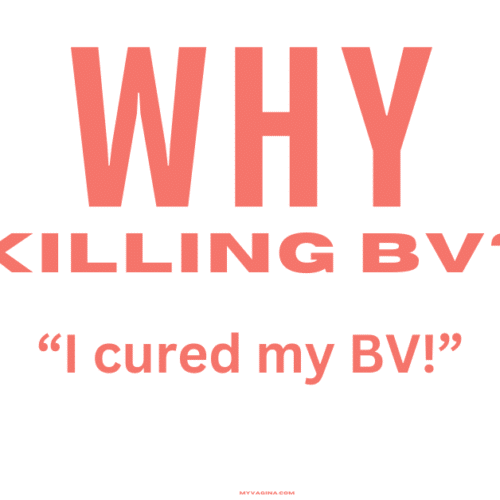Periods: hygiene and etiquette
You should never feel ashamed or dirty because of your period, but that doesn’t mean you should be loud and proud with whatever you choose to soak up your period blood. Knowing how not to gross out the people around you isn’t always easy if nobody tells you what not to do, so here are some tips on what not to do when you have your period.
Facts about menstrual blood and periods
#1. Blood starts to smell after being in contact with oxygen, and then because it starts to decompose with bacteria – think rotten meat.
#2. Other people aren’t as comfortable with your body secretions as you are. Nobody needs to see your period blood anywhere, used tampons or pads, or wrappers. Be considerate. It seems ok when it’s your blood, but it’s not so funny when it’s someone else’s – blood can cause some physiological responses in some people (like fainting).
#3. Make sure you are on top of A) when you are going to be getting your period (around about), and B) how heavy it is going to be on certain days. Use a period app or calendar to record what day your period was, figure out how long your average cycles are, and record how many tampons, pads or menstrual cups you use per day for each day of your cycle. This avoids accidents, which is more for your benefit than anyone else’s. Getting surprise periods isn’t ideal.
#4. Always carry a couple of tampons in your purse or backpack – you will need them, or someone else might. Be prepared.
#5. Never, ever make someone else clean up your period mess. If you drip blood, drop rubbish or have a used pad or tampon that needs disposing of, clean it up thoroughly, immediately.
#6. Blood from your period is still the same health risk to others as blood from anywhere else on your body. You may not know if you have a blood-borne disease (like a virus) – it might not affect you badly, but if it comes in contact with someone else’s bloodstream, could cause dire problems. Blood hygiene is important in all aspects of life and your period is no different.
Good etiquette when using pads and panty liners
#1. Never flush pads or panty liners or their wrappers down the toilet. They are way too big, and will cause a blockage. They also have plastic components which do not biodegrade.
#2. When putting a pad or panty liner into your underwear, make sure you throw the wrappers away in a proper rubbish bin, either ones made available in public restrooms, or if you are at home, put it into a real bin.
#3. When you are removing a used pad or panty liner, roll it up, and dispose of it in the bin provided in public restrooms, or roll toilet tissue around it, and put it into a bin that will be emptied within a couple of days.
#4. Burning used pads and tampons makes a hideous smell. Do at your own risk!
#5. Don’t leave used pads or tampons sitting around unwrapped in open-top rubbish bins so people can see. At least wrap it in toilet paper.
#6. Don’t leave pads in your underwear full of blood for too long, since the blood will start to smell, and bacteria have the opportunity to proliferate. A pad can be left for long periods of time if it isn’t full, but be the judge of your own pad – give it a quick sniff and see what it smells like. If it hardly smells of anything, you’re fine; if it smells pungent, it’s time to change and probably wipe yourself down too, since blood will stick to your vulva.
#7. When you take your trousers and underwear off in one go at home, and step out of them, don’t forget about your pad! It will be face up for everyone to see, smell and touch, including small children, pets, and your parents or siblings. Worse, you invite a friend around and your pad is sitting bloody side up without a care in the world.
Good etiquette when using tampons
#1. Tampons should be wrapped in toilet paper before being disposed of either in a public restroom bin (the special ones) or at home. The reason you need to wrap it in the public restroom is that if it is dripping or really full, you are going to drip or smear your blood on the outside of the special hygiene bin, unless you touch the bin lid (which you want to avoid for those exact reasons). If you wrap it, you can use the toilet tissue to push the tampon into the bin, and not touch anything. Remember that if you smear blood on that bin, a real person has to come and clean it off.
Tampons should generally not be flushed down the toilet, since they can cause blockages, but this may depend where you live. Many countries do not have sufficient plumbing systems to cope with even toilet paper being flushed, let alone tampons. Wrap your used tampon in toilet paper and use the bin so it isn’t your tampon that blocked up the toilet system. If you are travelling to countries with bad plumbing, observe their toilet paper and tampon rules.
#2. Septic tank systems are not designed to have tampons flushed into them, since they work using the bacteria to break down the waste. Adding in cotton wads to this isn’t ideal, so check where you are if you are on mains sewerage or if you have a septic tank system installed. Don’t think that just this one won’t matter – it does. Ask the people who have to pay for it to be emptied.
#3. Use the special hygiene bins. Some places with excellent plumbing can cope with tampons being flushed down the toilet, but if you are provided with a special hygiene bin for your tampon, use it – it’s there to save everyone a lot of time, effort and expense fixing up a blocked drain pipe. Drains are not magic – they end somewhere else, and someone has to deal with your tampon eventually. It can be gross to dangle the tampon, touching the handle that may be dirty, so be smart. Don’t touch other people’s blood.
#4. You don’t need to go nuts with the toilet paper wrapping, but make sure blood won’t be soaking through where everyone will be able to see it in an open bin, or be sitting in a bin for days and days without the bin being emptied. Blood smells, and a bin full of used tampons and pads can get pretty gross pretty quick.
#5. Don’t leave tampon wrappers on the floor in toilet stalls – use your manners, clean up after yourself, and don’t make the poor cleaner pick up your tampon wrapper because you couldn’t be bothered.
#6. Never, ever leave a used tampon lying around.
#7. Some people are even squeamish about blood and this might include your period blood. Be considerate with your menstrual blood!
If you have a question about periods, tampons, pads or other menstrual devices, ask Aunt Vadge. She knows everything!
Get tampon tips and tricks here






